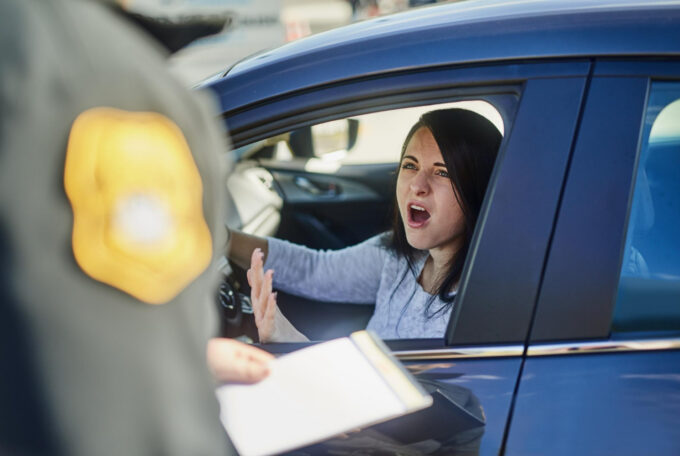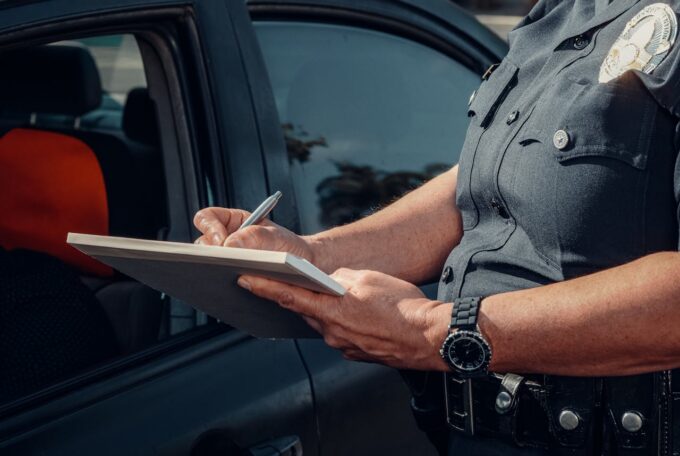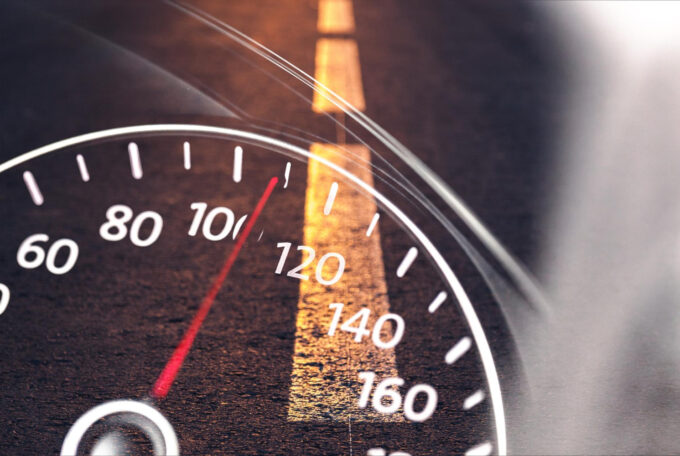It’s easy to let your speed creep up when driving on a long stretch of interstate. The roads are wide, the traffic might be flowing smoothly, and there aren’t as many stoplights or signs reminding you to slow down. But speeding tickets are a common and expensive surprise for drivers on Louisiana interstates like I-10, I-20, and I-49. One missed speed limit sign or one shift in a speed zone can land even the most careful drivers with a ticket.
Interstate highways in Louisiana are watched closely by law enforcement. Whether you’re a local heading to work or an out-of-state driver passing through, all it takes is a few miles per hour over the posted speed limit to get pulled over. Getting a ticket in an unfamiliar area can make the situation even more stressful. But understanding how these tickets tend to happen, and what comes next legally, can help drivers avoid long-term consequences.
Common Reasons For Speeding Tickets On Louisiana Interstates
Certain stretches of Louisiana interstate are known for strict speeding enforcement. Drivers often don’t realize how quickly a cruising speed can become a violation when zones shift or traffic patterns suddenly change. Some spots are even marked as speed traps, where law enforcement frequently parks out of sight to catch drivers off-guard.
Here are a few common reasons drivers end up with speeding tickets while traveling on interstates through Louisiana:
1. Sudden Speed Zone Changes
It’s not unusual to see a 70 mph zone drop to 55 without much warning, especially when heading into more populated areas or construction sites.
2. Going With the Flow
When traffic around you is moving faster than the posted limit, drivers often keep pace without glancing at their speedometer, assuming the group speed is safe.
3. Rushing on Long Drives
Long road trips can wear down your patience. Fatigue or running behind schedule can lead drivers to press the gas a little harder just to make up time.
4. Unmarked Enforcement Areas
Some areas have hidden patrol spots where officers use radar or laser detection to clock speeding drivers before the driver even notices a police car is nearby.
Getting ticketed on an interstate can feel frustrating, especially if you had no idea you were speeding in the first place. One example comes from a driver heading eastbound on I-10 who didn’t see the speed limit drop as they entered Baton Rouge. Without realizing it, they were caught going over the limit and received a ticket that came with possible court costs and license points.
Understanding Legal Implications
Once you receive a speeding ticket on an interstate, the legal process begins whether you plan to fight it or not. Some drivers think it’s faster just to pay the fine and be done with it, but that often carries its own long-term problems.
Unpaid or ignored tickets can lead to:
– Higher insurance rates
– Points added to your license
– Possible license suspension for repeated offenses
– An active warrant if you miss a court date
For out-of-state drivers, ignoring a Louisiana ticket doesn’t make it go away. In many cases, the violation can still show up on your home state’s driving record due to state information-sharing systems. That means a ticket you picked up on I-49 while passing through Louisiana could still impact your home insurance.
If you choose to contest the ticket, you’ll have to deal with the court system in the parish where the ticket was issued. Each parish has its own court schedule, procedures, and local rules. Some allow remote appearances or attorney representation in lieu of showing up in person, but others may require driving back just to avoid penalties. That’s why having someone who understands local traffic laws and court expectations can make a big difference in how your case ends.
How A Speeding Ticket Attorney Can Help
Getting a ticket on the interstate might feel like a simple mistake, but dealing with the legal side can get complicated quickly. A speeding ticket attorney knows how to handle these situations so the driver doesn’t have to take it on alone. Whether the ticket happened on I-10 heading through Lafayette or on I-20 near Monroe, each location has its own quirks, court systems, and ticket handling processes. It makes a real difference to have someone who speaks the same language as the court clerks and judges in that part of Louisiana.
Attorneys look at more than just the ticket itself. They dig into what tools were used to clock your speed and whether they were working properly. If there’s traffic camera footage or body cam footage, they know how to request those records. Sometimes reading through the officer’s notes can uncover inconsistencies, especially if they’re using older radar tools or wrote something vague. These details can help build a better defense.
Here’s how a speeding ticket attorney might help in your case:
– Check if radar or laser devices were properly calibrated and operated
– Review the citation for any incorrect or missing information
– Request an amendment to reduce the charge or punishment
– Represent you in court, so you don’t have to travel back if you’re from out-of-state
– Negotiate with prosecutors to limit license points and fine amounts
Drivers often assume they have to go to court or plead guilty just to move forward. Lawyers can usually look at the case and give better options. Whether it’s getting charges reduced or dismissed or working out a deal with less damage to your record, they focus on keeping your driving history clean.
Tips For Avoiding Speeding Tickets On Interstates
While a ticket can’t always be avoided, especially if enforcement is heavy or the speed zones are confusing, there are a few simple habits that drivers can use to steer clear of them. Most of these don’t require much effort but can go a long way on Louisiana’s long stretches of highway.
Try these tips next time you’re headed down I-49 or across I-10:
– Use cruise control when traffic allows. This helps maintain a steady speed and avoids creeping up without noticing
– Watch for upcoming speed limit signs. Keep an eye out for changes when coming into cities, school zones, or construction areas
– Follow signs, not other drivers. Just because everyone is speeding doesn’t mean it’s safe. Officers pull over individuals, not packs
– Slow down in bad weather or heavy traffic. Even if it’s below the limit, speeding in poor conditions can be tagged as unsafe driving
– Stay rested and focused. Long drives wear you down. Fatigue makes you more prone to ignoring your speed or missing key signs
One overlooked tip is to avoid playing music too loudly. It can get you hyped up and lead you to unintentionally speed without realizing it. Staying focused and in control can help prevent a ticket before it even starts.
Protect Your Driving Record with Expert Help
A speeding ticket on a Louisiana interstate can cause more trouble than just a fine. It can rack up costs, put points on your license, and hike up your insurance premiums. Ignoring it could lead to an even bigger issue down the road, especially if you miss a court date or forget to follow instructions on the notice.
The biggest challenge for many drivers, especially ones from out of state, is knowing where to start. Getting pulled over on a highway you’ve never driven before comes with confusion, time pressure, and possible travel costs. Local court rules, paperwork deadlines, and communication gaps make it even trickier.
Acting quickly gives you the best shot at limiting the damage. Even if you think the case is small, taking care of it early shows the court you’re responsible. And when you’ve got the backing of someone who knows what they’re doing, there’s less guessing and way more confidence going into the process.
If you’re dealing with a speeding ticket on one of Louisiana’s interstates, getting the right support can make all the difference. At LouisianaSpeedingTicket.com, we help drivers navigate local court systems, challenge questionable radar readings, and work toward reducing penalties. Learn how a speeding ticket attorney can guide you through the process with less stress and better results.





